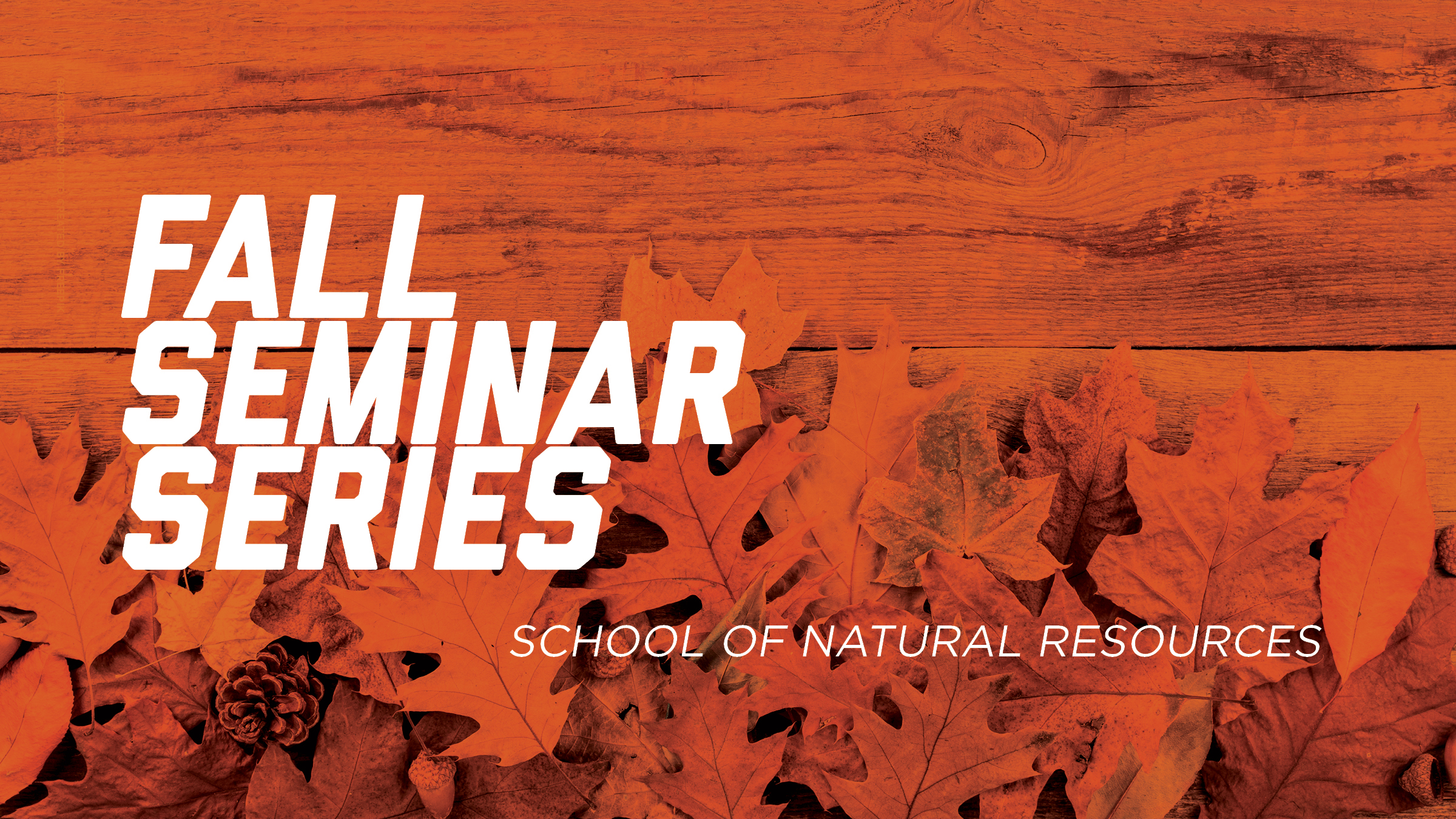
The annual School of Natural Resources Fall Seminar Series will bring leading scientists to campus to cover a diverse range of topics, including drought and climate change, fisheries health and wildlife populations, soil health and Nebraska crops, and stakeholder engagement.
The series begins Sept. 25 with a presentation by Tonya Haigh, a rural sociologist with the National Drought Mitigation Center, from 3:30 to 4:30 p.m. in Hardin Hall, Room 901. Haigh will deliver the lecture "Adept at adaptation: Identifying and building agricultural managers’ adaptive capacity for climate risk management."
All remaining seminars are 3:30 to 4:30 p.m. in Hardin Hall auditorium, Room 107, 3310 Holdrege St. The seminars are free and open to the public.
Other speakers in the series include:
Oct. 2 ― Wes Eaton, assistant research professor of rural and natural sociology at Penn State, presenting “Stakeholder Engagement: Over hyped or Underutilized? Lessons from the literature and stakeholder interviews on the aims and purpose for stakeholder engagement”
Oct. 9 ― Brian Wardlow, research assistant professor and director of the Center for Advanced Land Management and Information Technologies, and Mark Svoboda, climatologist and NDMC director, presenting “Tracking Drought Here and Abroad: Tools of the Trade”
Oct. 16 ― Matt Andrews, SNR professor and director of Nebraska EPSCoR, presenting “Nature's fat burning machine: brown adipose tissue in a hibernating mammal”
Oct. 23 — Andrea Basche, assistant professor with the Department of Agronomy and Horticulture at Nebraska, presenting “Optimizing and Diversifying Cropping Systems for 21st Century Challenges: Opportunities for Nebraska”;
Oct. 30 — Katharine Hayhoe, climate scientist and professor at Texas Tech University; presenting on climate change;
Nov. 6 — Stephen Webb, Range and Wildlife Scientist at Noble Research Institute, presenting “Spatially Explicit, Individual-based Models to Prioritize Wildlife Habitat for Conservation: Examples from Greater Sage-Grouse and Elk Research”;
Nov. 13 ― Paul Humphries, professor at Charles Sturt University in Albury, Australia, presenting “Making the dead speak: how historical ecology can aid fish and river conservation and management”; and
Nov. 20 — Martha Shulski, state climatologist and director of the Nebraska State Climate Office at SNR, and Natalie Umphlett, regional climatologist with the High Plains Regional Climate Center, both at SNR, presenting "Climate change planning and cities: Lessons learned from partnerships on the Plains."
*As additional details on presentations become available, this story and our website will be updated.
Natural Resources